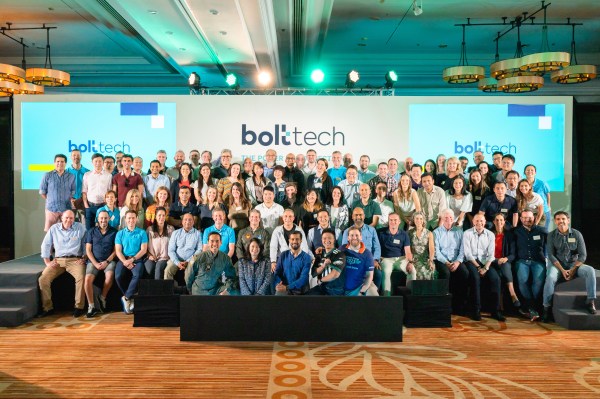Embedded insurtech is still hot, as the $196 million in funding landed by bolttech proves. The company, which started in Singapore but now has operations around the world, said it is now valued at $1.6 billion. The funding was led by Tokio Marine, Japan’s first insurance company. Other participants included new and existing shareholders, including life insurance leader MetLife through its subsidiary MetLife Next Gen Ventures and Malaysia’s sovereign wealth fund Khazanah Nasional.
Bolttech earlier announced that Tokio Marine will lead its Series B funding round, which then valued the company at an up-round valuation of $1.5 billion. Group CEO Rob Schimek said the current funding is part of the same round. “Bolttech’s Series B is closed to new interest from the market, but we continue to engage with the investor community in case of future opportunities,” he told TechCrunch.
Founded three years ago, bolttech says its Series B funding is the largest straight equity Series B for an insurtech in the last year, and that its Series A round, announced in 2021, was also the largest ever for an insurtech.
Embedded means insurance or protection products that are embedded into the customer experience as they buy a product or sign up for a service. For example, someone purchasing a smartphone might be prompted to purchase a protection plan that offers repair, device replacement or trade-ins.
Schimek said bolttech’s model uses a B2B2C approach, which means it connects more than 700 distribution partners around the world with 230 insurance providers, which offer 6,000 products to consumers.
Bolttech bills itself as one of the world’s leading embedded insurance providers. Its customers include Liberty Mutual, PayMaya, Progressive, Lazada, Samsung and Home Credit. It has licenses to operate throughout Asia, Europe and all 50 United States states. The startup currently quotes about $55 billion worth of annualized premiums.
Some examples of how bolttech’s embedded insurance works include device protection, which Schimek describes as a “hero product” for bolttech. Both white-labeled and cobranded protection products are offered to end-customers through partners like Samsung, Windtre, LG U+, BackMarket and Home Credit.
Device protection isn’t the only product bolttech offers. For example, it enables JKOPay in Taiwan and Maya in the Philippines to offer insurance marketplaces through their apps.
“Overall, we can help any kind of business — whether they are insurers, brokers, agents or non-insurance businesses like telcos, e-commerce, retailers, fintech — to embed insurance at the point of need for their customers,” Schimek said.
Bolttech launched in Singapore in April 2020 and was able to establish an international presence for several reasons. The key one was the partnerships it forged with 700 distribution partners and over 230 insurers around the world.
“We were very intentional about making sure that we have established the right partnerships for success in specific geographies. We generally follow our partners into a geography with business already established,” said Schimek. “We were also able to grow our international footprint as we established greenfield operations in several markets and completed a number of acquisitions that helped us accelerate our expansion.”
He added that bolttech now has 1,500 team members around the world, including insurance and tech experts, and that helps them find innovative new ways to distribute insurance products.
The Series B will be used on bolttech proprietary technology, with plans to pioneer the use of artificial intelligence and machine learning in its operations and the insurance and protection value chain, including computer vision, generative AI/natural language processing, advanced analytics and robotic automation.
Schimek said bolttech also plans to enhance its insurance distribution tech, including its purchasing experiences and quoting engines, optimizing claims automation, fraud detection and inventory management.
Correction made to reflect that Metlife was not a lead investor.
